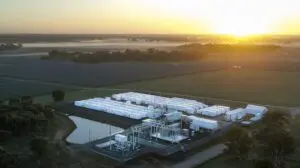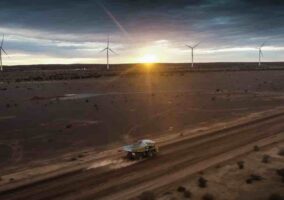The former heads of the Clean Energy Finance Corporation (CEFC) and the Australian Renewable Energy Agency (ARENA) have called on the Morrison government to abandon amendments to the CEFC’s guiding legislation, describing the plan to open up the green bank to investments in gas projects as “flawed.”
Opposition to the amendments was expressed in a joint statement issued by former CEFC CEO Oliver Yates, former ARENA CEO Ivor Frischknecht, former chair of the CEFC Jillian Broadbent, the former chair of ARENA Greg Bourne, and a number of prominent clean energy experts, including Simon Holmes à Court, Geoff Cousins, Miles George and professor Andrew Stock.
In the statement, the group calls for the Morrison government’s proposed amendments to the CEFC, which could see its investment mandate expanded to include gas projects, and loss making projects, to be rejected. The group argues that the changes are not necessary, and could compromise the success of the government’s green bank.
“We do not support changes to the CEFC’s legislation that undermine its independence, low emissions remit, commitment to profitability, or its avoidance of fossil fuels as part of a clear commitment to assist in the reduction of Australia’s climate emissions,” the statement says.
“We maintain that the changes proposed in the Bill are not required. Under its existing legislation the CEFC can already invest in grid reliability and security projects such as energy storage, transmission, grid stabilisation and dispatchable power.”
“Indeed, the CEFC is already doing so (for example, recent investments in battery storage). It is clear that all these classes of investment are covered by, and were contemplated in, the existing CEFC Act. The Amendment Bill is not needed,” the group adds.
In the statement, the group says that the Morrison government should ensure the CEFC cannot invest in fossil fuel projects, and will retain existing requirements to deliver positive returns on its investments. The group has also objected to new powers that would be granted to federal energy minister Angus Taylor to direct the investments of the agency, saying it was crucial the CEFC retained its independence.
It is an unprecedented intervention from the high profile group that has previously been directly responsible for the management of both the CEFC and ARENA, and follows the former CEFC CEO Yates telling a senate inquiry that the proposed amendments were “dangerous” and would open up the CEFC to “dirty deals.”
The CEFC was established under the Gillard government and was allocated $10 billion in funds that are to be used to support investment in new clean energy projects. The green bank has proven highly successful, helping to support total clean energy investments in Australia worth $16.7 billion since its inception, while also delivering an average annual investment return on behalf of taxpayers of around 5.3 per cent.
Labor and the Greens have indicated that they will oppose the amendments in their current form, with each party issuing a scathing dissent to a senate committee review of the bill, arguing that the changes would compromise a highly successful clean energy funding body.
The Morrison government has argued that changes to the CEFC’s legislation are required to establish the $1 billion Grid Reliability Fund, that the government intends to use to fund new dispatchable generation and network infrastructure, including commitments being made through the Underwriting New Generation Investments (UNGI) scheme.
However, the amendments have gone further, changing the investment mandate for the CEFC to include fossil gas projects within a definition of ‘low emissions technologies’ and would grant federal energy and emissions reduction minister Angus Taylor greater powers to direct the investments of the agency.
The proposed amendments would allow the energy minister to direct the way the CEFC makes new investments and redirect its focus to supporting new fossil gas projects, including the use of taxpayer funds for loss-making ventures.
Taylor would be granted new powers to change the investment priorities of the CEFC via a legislative instrument, that could not be disallowed by parliament, eliminating otherwise normal processes of accountability.
The proposed changes are currently being considered by the House of Representatives, and are likely to be considered by the senate before the end of the year.
Officials from the Department of Industry, Science, Energy and Resources told a recent hearing of senate estimates that an additional amendment bill will be brought before parliament to further extend the investment mandates of both the CEFC and the Australian Renewable Energy Agency to include carbon capture and storage projects.










